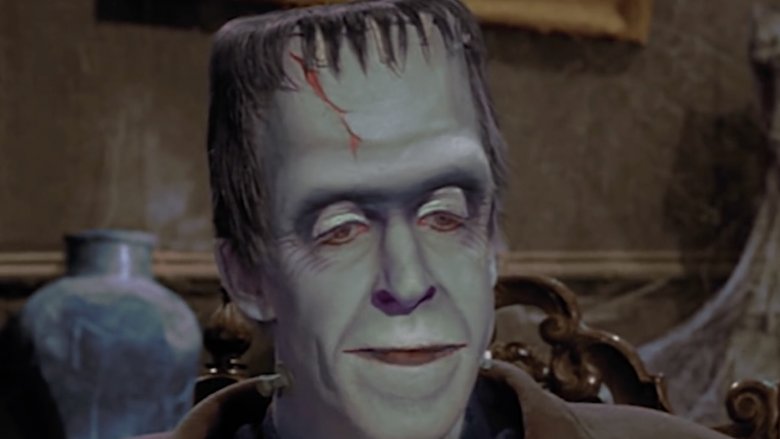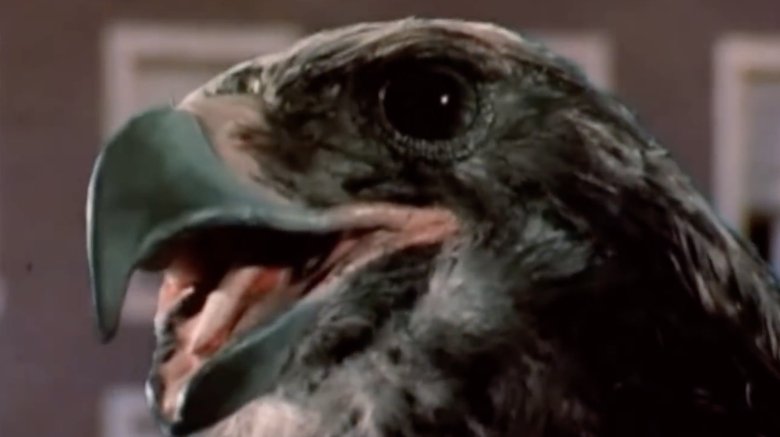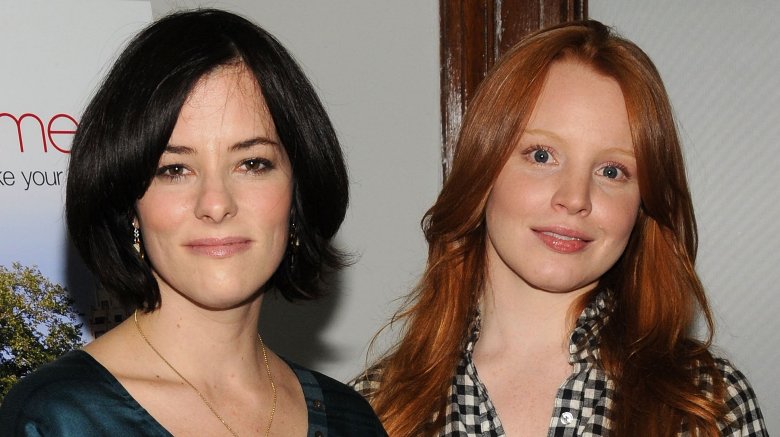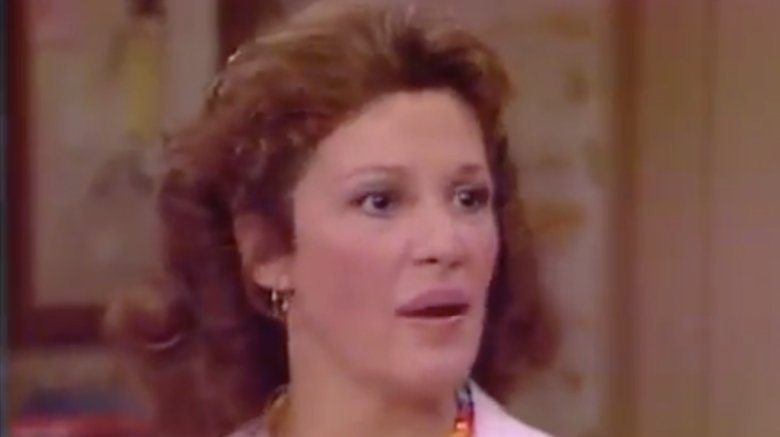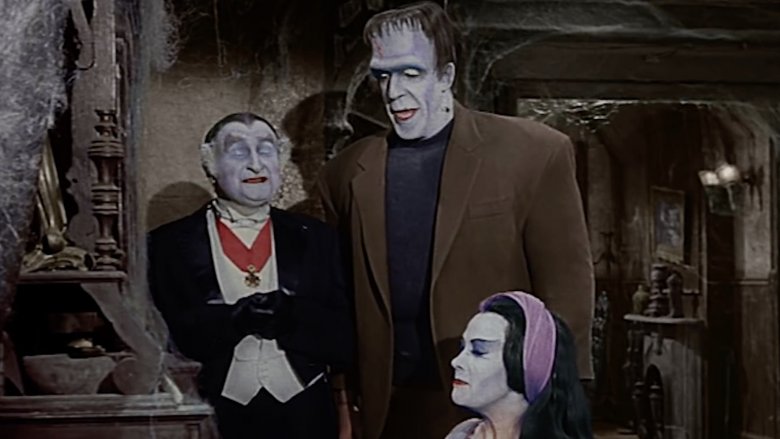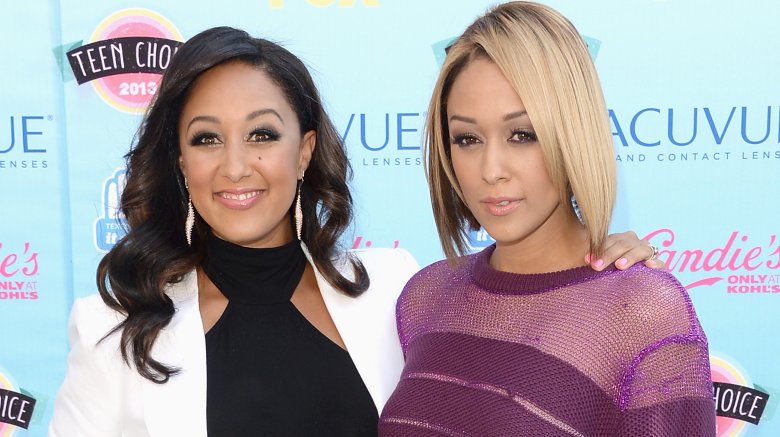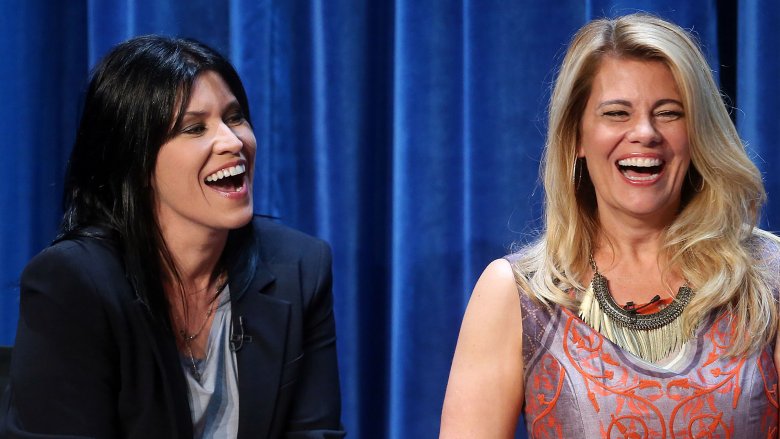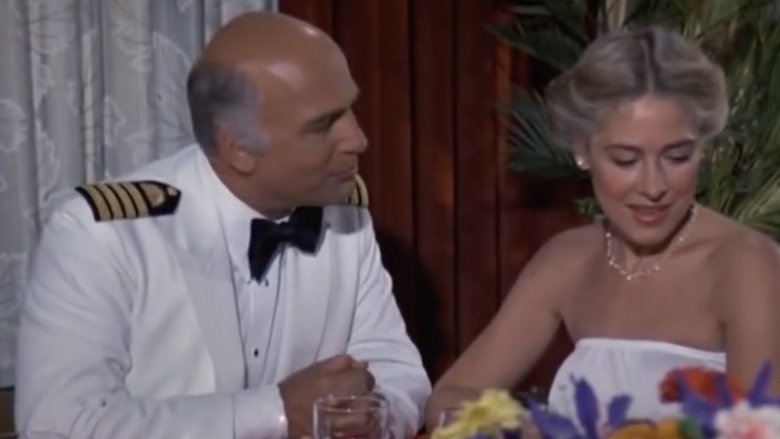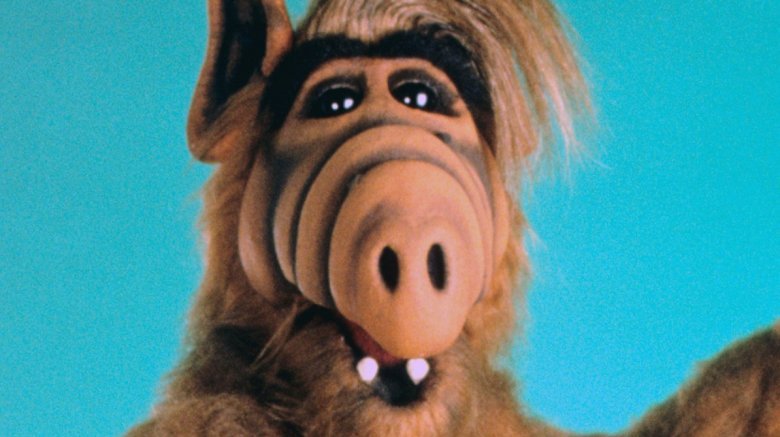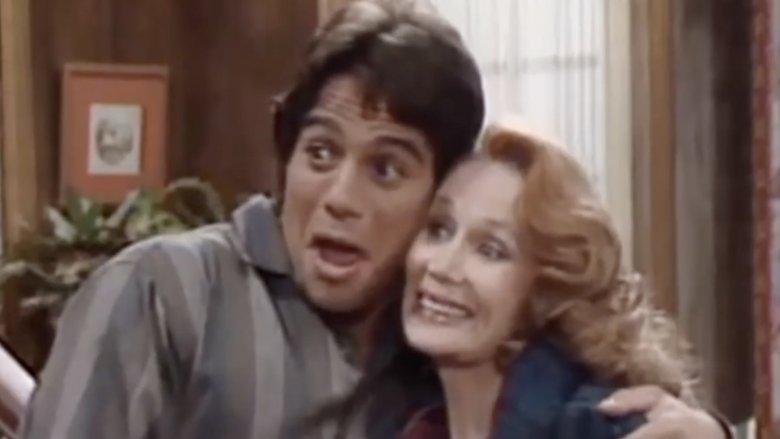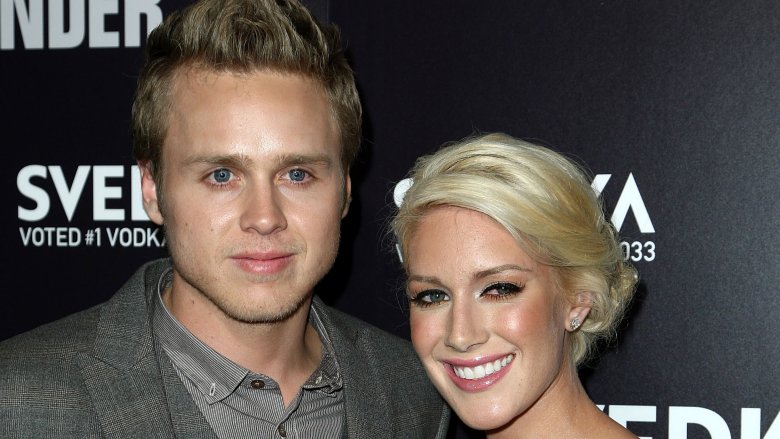Terrible TV Shows That Should Never Be Rebooted
In the world of television, everything that's old is new again. It seems like every network up and down the dial has gone crazy for reboots of classic or near-classic TV shows, packing their schedules with revivals or remakes of established, beloved hit shows of yesteryear. In just the past few years, viewers have been given new versions of Twin Peaks, The X-Files, 24, Will & Grace, Murphy Brown, Magnum P.I., MacGyver, Roseanne, Charmed, Full House, Dynasty, Muppet Babies, Hawaii Five-O, Lost in Space, and DuckTales (woo-ooo).
This phenomenon doesn't show any signs of slowing down, and some TV executives are probably sitting in a Los Angeles board room right now skimming a TV Guide from 1997 to figure out what shows they can next freshen up and remake. Revisiting old favorites is fun, but not every show deserves a second look. Here are some dead shows that, no matter what the world of TV tries, should stay dead.
A reboot would be cruel to Manimals
What happens if you take a very silly idea, get the green light to make it into a network television series, and then go ahead and produce the show, only to realize that the technology does not yet exist to make it at all compelling or remotely feasible? You get Manimal, a 1983 NBC series that starred actor Simon MacCorkindale as Dr. Jonathan Chase, a Remington Steele type who could magically transform himself into animals ("Manimal" is a portmanteau of "man" and "animal" you see).
Manimal was so bad that its name is virtually synonymous with "spectacular TV flop." It stands out even from NBC's legendary fall 1983 lineup, a slate from which no new show earned a second season. That's because Manimal is ridiculous. The show's big promise — man becoming animal — couldn't actually happen on-screen that much or that well due to the technological restrictions of early '80s TV. When Chase became a hawk, bull, dolphin, snake, or, most often, a panther, he did it off screen or via some very slowly rendered time-lapse effects. While state-of-the-art morphing technology is now available, any TV producer who tries to revive this thing is dealing with a cursed object.
Jezebel James doesn't need to return
Amazon's The Marvelous Mrs. Maisel virtually swept the comedy categories at the 2018 Emmy Awards, winning Series, Actress (for Rachel Brosnahan), Supporting Actress (Alex Borstein), and Writing and Directing awards for creator Amy Sherman-Palladino. That praise was overdue — Sherman-Palladino previously created adored shows like Gilmore Girls and Bunheads. The former enjoyed a successful revival on Netflix, and the latter's rebirth is a possibility, meaning the now hot Sherman-Palladino has just one other big show on her resume that somebody could very well bring back: The Return of Jezebel James. They shouldn't do that.
Debuting as a midseason replacement on Fox in 2008, the braying laugh-track-sweetened sitcom starred Parker Posey as a wealthy, neurotic, and largely unlikable book editor who is prone to long, narcissistic monologues. Inexplicably, she wants to have a baby, and so she enlists her bohemian younger sister (Lauren Ambrose) to be her pregnancy surrogate, and, because this is a sitcom, her mismatched roommate. Critical reviews were savage, and after just three episodes, Fox canceled The Return of Jezebel James.
Alice shouldn't live here anymore
Hollywood is considering bringing back a sitcom from three decades ago, one about a family that lives in the middle of the country and strives to stay together even as life gets harder and economic depression constantly takes its toll, starring an extremely charismatic woman. No, not Roseanne. This is Alice, the 1976-1985 comedy about a widowed woman (Linda Lavin) who winds up working at a sad and dingy diner in the outskirts of Phoenix and living in a tiny apartment with her son (Philip McKeon).
With today's deeply engaging, cinema-quality TV (and so much of it that one person can never watch it all), it's baffling that Alice was once appointment television for tens of millions. It was a depressing and formulaic show, as Alice struggled to earn a living working hard in a diner for her sexist boss Mel (Vic Tayback). Also, it was shot on videotape, which really made Mel's Diner pop with grime.
While Alice is rarely spoken of today or mentioned as one of the all-time great sitcoms, it did run for a long time, which means a reboot was inevitable. Diablo Cody, the Oscar-winning screenwriter of extremely original films like Juno, Young Adult, and Tully, is working on it. The new Alice has already received a pilot order from Fox.
This one sounds truly Munstrous
Awesome surf-rock theme song notwithstanding, The Munsters was not a very good show. It was a weak and obvious rip-off of The Addams Family, but lacked that show's pedigree (Charles Addams' decades of creepy and kooky New Yorker cartoons). It played like a standard wacky '60s sitcom hiding its cliches under the cosmetic enhancements of a haunted house (address: 1313 Mockingbird Lane) and the family members' close resemblance to classic movie monsters, like Frankenstein's monster, the Bride of Frankenstein, and Dracula.
But it was pleasant enough, and lived on in syndicated reruns like some kind of zombie, spawning several made-for-TV movies and the reboot The Munsters Today in 1987. In 2012, an innovative revival almost happened — Pushing Daisies and American Gods mastermind Bryan Fuller shot a two-hour pilot for NBC called Mockingbird Lane, a horror take on The Munsters in which Grandpa (Eddie Izzard) straight up murders people (it didn't get picked up to series). Five years later, another unnecessary Munsters is in the works. Seth Meyers has signed on to produce a version written by author Jill Kargman which found the monster family struggling to assimilate in Brooklyn...which means both monster jokes and quips about hipsters' facial hair.
Sister, Sister, again, again?
The Internet and vast libraries of streaming content didn't exist in the 1980s and early '90s, which meant the great unwashed masses got obsessed with some pretty random stuff. For example: the success of Crocodile Dundee led to a brief fascination with anything Australian-ish (see: battery pitchman Jocko, Outback Steakhouse, Koala Blue). Another strange fad: twins. Two people looking alike was a huge novelty — there was a sitcom about twins called Double Trouble, the Sweet Valley High book series sold millions, Coors made a pair of blond twins the focus of an ad campaign, and the burgeoning WB saw one of its biggest hits in Sister, Sister.
Tia and Tamara Mowry starred in this show about twins adopted separately but come to live together as teens under one roof with each of their respective single parents. Of course, the twins were very different (one cool, one square) but they both dressed like Blossom (lots of hats) as they engaged in six seasons worth of sugary, formulaic, and Parent Trap-esque episodes. Playing the parents: vaguely embarrassed Tim Reid (of WKRP in Cincinnati) and Jackeé (of 227). Because millennials love their '90s and 2000s nostalgia, and likely because Fuller House (a reboot of Full House) has done so well, there's talk of unnecessarily reviving Sister, Sister.
Let's not face the Facts
There's nothing on the air today quite like The Facts of Life, and maybe that's a good thing. This patronizing and condescending network sitcom directed at kids focused on life at an upstate New York boarding school, as seen through the eyes of (after some first-season cast cutting) four stereotypes: the princess (Blair), the tough girl (Jo), the funny one (Natalie), and the naive one (Tootie). Each week they learned a very important moral (a "fact of life," if you will) and got a lecture from the school's dietitian and de facto counselor, Mrs. Garrett.
Somehow, this show ran for nine years, finding ways to keep all the girls in one place long after graduation, such as running Mrs. Garrett's never-busy gourmet food shop, Edna's Edibles. Even its theme song was annoying. Still, people in their 30s and 40s fondly remember it, simply because it was a part of their childhoods. Two fans are now powerful Hollywood players with the ability to bring it back to TV. Oscar winner Leonardo DiCaprio and Emmy nominee Jessica Biel, of all people, are on board as producers for a Sony Pictures television revival.
Not so exciting and new anymore
From 1977 to 1987 (as well as multiple made-for-TV movies), The Love Boat provided a weekly vacation to millions of viewers, set on a luxurious and massive cruise ship that seemingly sailed through some kind of Bermuda Triangle of love. Each week, faded and fading celebrities played cruisers looking for love on the high seas (or rekindling romance with their spouse of many years). The ship's crew (a captain, purser, doctor, bartender, and few others) contrived to make those hook-ups happen for guests like Charo, Conrad Bain, and Telly Savalas. In addition to its remarkable cheesiness, the whole thing was an ad for cruises, specifically cruises on the real-life Love Boat, the Pacific Princess.
This one seems ripe for reboot, with a whole new generation of potential celebrity guests to choose from. But a cruise ship is no longer a novelty, nor does schmaltz have a place on TV. Besides, UPN tried a revival in 1998 with the short-lived Love Boat: The Next Wave, and if that great title was already used, what's the point?
ALF may finally get to eat a cat
The '80s were a different time, alien to our own. They weren't so politically divisive, for example (Ronald Reagan won re-election in 1984 on a 525-13 Electoral College landslide), and ALF, a show about a furry, obnoxious alien was a top 30 hit on broadcast television. Kids and adults loved ALF, and the alien at the center of the show (ALF stood for "alien life form"–the Tanner family, who protected and fed him, never called him by his real name, Gordon, for some reason) became a pop culture phenomenon. Millions bought talking ALF dolls and T-shirts bearing tedious ALF catchphrases like "Got any cats?" (a hilarious running joke was ALF's desire to eat the Tanners' pet cat) and "I kill me!" (he'd say that after laughing at one of his own weak wisecracks). Most plots concerned ALF driving sputtering, rage-filled dad Willie Tanner to the brink of madness, hiding from the nosy neighbors (lifted whole cloth from Bewitched), or being a slob who ate too much junk food.
ALF ended definitively and darkly in 1990 — the government finds out he exists and whisks him away for unspeakable testing. Nevertheless, it's likely coming back to TV. Variety reports that Warner Bros. TV's reboot may focus on ALF coming out of Area 51 after nearly 30 years of captivity and noticing how much the world has changed since the '80s, a time so innocuous that a show like ALF was a hit.
Who's the Boss? is a question best left unanswered
A somewhat novel premise back in the day, Who's the Boss? was one part slow-burn romantic comedy a la Moonlighting, and one part blended family sitcom like The Brady Bunch. It also played with reversing some gender roles, but went about it in kind of a sexist way. For instance, it was about a family and their live-in housekeeper, except ("get this," the show seemed to suggest) the head of the household was a single mother, and the housekeeper...was a macho guy. Also, the title suggests that maid Tony (Tony Danza) had a claim on being the boss just because he was the man, even though Angela (Judith Light) was the owner of the house and Tony's employer. However, the show did project an image of a loving, nontraditional family. Tony and Angela lived in the same house with their kids — his daughter, Samantha (Alyssa Milano) and her son, Jonathan (Danny Pintauro) — as well as the prototypical sitcom "horny grandma," Mona (Katherine Helmond).
The problematic and dated elements should preclude this from a revival, but it's easy to see how producers could take a Fuller House-style approach to a new Who's the Boss?, which is to say remake it with the kids as adults. Picture it: Samantha is now a successful professional and single mom, and she hires a hunky male housekeeper to watch over her kids. And of course, Tony Danza stops by all the time.
Run from The Hills
In the early 2000s, MTV left the music videos and cartoons (Daria, Beavis and Butt-head) behind to double-down on the reality TV, focusing on shows about wealthy people, such as MTV Cribs, My Super Sweet 16, Laguna Beach: The Real O.C., and its spinoff The Hills.
That one became a monster hit, and set a template for the "reality soap" format still used by shows like Keeping Up with the Kardashians and The Real Housewives family of series. Those two examples at least have some sass — The Hills is just about the lowest-energy TV show of all time. It seems like The Hills consisted of little more than teens (and later, young adults) in wealthy California environs sitting at tables outside restaurants listlessly discussing (but really mumbling) their plans and what went down at the previous night's party. The off-screen antics of the real people from The Hills filled tabloids from the show's debut in 2006 to shortly after its demise in 2010, particularly drama-addicted couple Spencer Pratt and Heidi Montag.
Feeling nostalgic, MTV is bringing The Hills back less than a decade after the series wound down. Most of the cast members — who went on to do things such as more reality TV — are all interested in returning, including Pratt, Montag, Audrina Patridge, and Brody (son of Caitlyn) Jenner.
